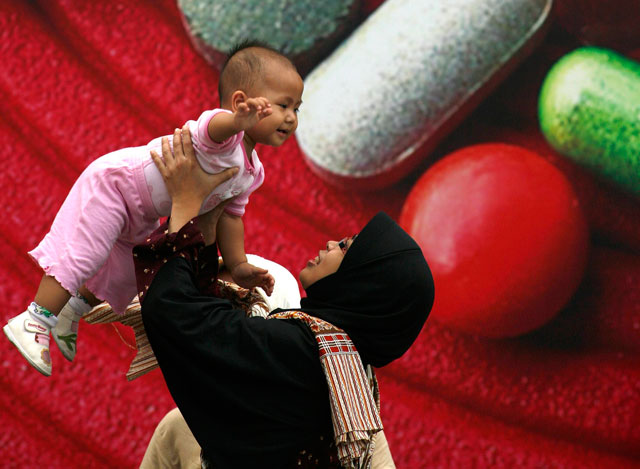The value of Indonesia’s pharmaceutical market is expected to almost double by 2020, but challenges remain
Driven by increased government healthcare spending and growing life expectancy, the Indonesian pharmaceutical market value will climb from approximately $5 billion in 2013 to $9.9 billion by 2020, at a compound annual growth rate (CAGR) of 10.2%, according to the research and consulting firm GlobalData.
The rapid growth is due to the introduction of government healthcare reimbursement programs, such as Jamkesmas and the Family Hope Program. Their aim is to provide health insurance to all Indonesians by 2019.

In May this year, the government also eased some foreign investment regulations, including pharmaceuticals.
“Patented drugs account for the majority of the Indonesian pharmaceutical market,” said Joshua Owide, GlobalData’s director of healthcare industry dynamics. “Therapeutic segments, such as infectious and respiratory diseases, are expected to grow significantly in the future, thanks to the increasing incidence of certain communicable diseases,” he added.
“The generic market is also undergoing rapid expansion, boosted by government incentives and the loss of patent protection for several high-selling products. The over-the-counter drug sector reached a 48% share of the pharma market in 2013.”
Demographics also play an increasingly supportive role. “Indonesia has a young population and is quickly urbanising, powering growth in incomes,” a recent report from McKinsey’s Global Institute said. Between now and 2030, Indonesia will be home to an estimated 90 million additional consumers with considerable spending power, the report noted.
Still, the outlook is not entirely bright. The increasing use of generics, coupled with counterfeit medicines, could slow down the Indonesian pharmaceutical industry expansion, Global Data stressed.
The country’s regulatory system for intellectual property (IP) enforcement is problematic on a number of levels, due to inadequate observation and enforcement, and the lack of an effective customs system to discourage infringement of IP rights, opening up “major loopholes”, Owide said. “Infringement is common, but only minor charges are imposed in practise.”

